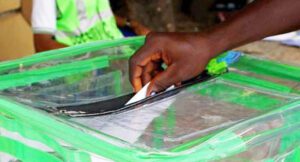The potential link between counterfeit products and organised crime networks
The recent incursion conducted by the National Agency for Food and Drug Administration and Control (NAFDAC) upon establishments that have been transformed into makeshift factories for the production of adulterated alcoholic beverages and food items in Aba, Abia State, brings to the forefront the persisting predicament of counterfeits and unregistered commodities in Nigeria.
This matter is of utmost gravity as it poses a substantial peril to the well-being and safety of the general public.
The magnitude of criminality that has been unearthed is nothing short of astounding – a staggering number of more than 240 shops have been converted into unsanitary and perilous subterranean factories, employing hazardous practices such as the utilisation of contaminated water and chemicals in the production of counterfeit beverages.
The range of products discovered during this operation encompassed renowned brands of wines and spirits, including Hennessy, Smirnoff, and Gordons, as well as popular soft drinks such as Coca Cola and Eva water.
NAFDAC has estimated the value of this seizure to be a substantial sum of N750 million.
Ten people were arrested, but this is likely just the tip of the iceberg for such illegal activities going on in parts of Nigeria.The impact of these illegal activities is devastating. Beyond revenues lost, NAFDAC estimated over three million people worldwide die yearly from toxic alcohol poisoning.
The dangerous chemicals used can blind or kill. This comes against the backdrop of rising substance abuse and addiction in Nigeria, with fake and often dangerous alcoholic drinks flooding markets.
NAFDAC director-general, Prof. Moji Adeyeye, had warned that drinking adulterated alcohol can cause nausea and vomiting, abdominal pain, drowsiness and dizziness, blue tinged or pale skin, irregular or slow breathing, low body temperature, unconsciousness or passing out, kidney and liver failure or even death.
“Methanol, a substance which can be used in fake vodka, may cause permanent blindness,” she added.The proliferation of unregistered products also poses grave dangers.
Reports indicated it can take up to three years to secure NAFDAC approval, frustrating law-abiding enterprises and allowing unvetted products to flood shelves. Their safety is questionable as they bypass regulatory scrutiny.It is imperative that the Nigerian government takes swift action to address this issue.
NAFDAC must be empowered to crack down on these illegal activities and ensure that all products sold in Nigeria meet regulatory standards. The government must also provide support to legitimate businesses to ensure they can compete fairly in the market. The health and safety of Nigerians must be a top priority, and this can only be achieved through strong and effective regulation.
Without a doubt, anti-counterfeiting laws are in desperate need of a boost, with stronger penalties to deter those involved in the production and distribution of fake products.
We strongly urge NAFDAC (National Agency for Food and Drug Administration and Control) and other law enforcement agencies to carry out similar raids on major markets in Lagos, Onitsha, and Kano, which have been identified as hubs for counterfeit goods.
Additionally, it is crucial to tighten border controls to prevent the influx of fake products into the country.To combat this issue effectively, public awareness campaigns should be launched to educate people on how to identify genuine products.
The government can enlist the help of celebrities as brand ambassadors to raise awareness among Nigerians, particularly the youth, about the dangers of purchasing counterfeit alcohol and unregistered pharmaceuticals.
Leveraging social media platforms will ensure that these messages reach a wider audience.It is encouraging to see that NAFDAC has released a list of adulterated wines and drinks currently in circulation, while also providing guidance on how to verify the authenticity of these products.
The list includes various brands of adulterated wine, such as Seaman Schnapps, Henessy, Four Cousins, Carlo Rossi, Jenney, Chelsea London Dry Gin, Schnapp Dry Gin, McDowells, Black Labels, Gordons, Martell, Campari, Smirnoff Ice, Eva Non-Alcoholic Drink, Evra Non-Alcoholic Drink, Cartel, and others.
Furthermore, NAFDAC has identified other fraudulent practices, such as the revalidation of expired products like Peak Milk, powdered milk, ketchups, yoghurt, and Coca Cola products.
Additionally, the packaging of fake and substandard products is a grave concern, as these items are later sold to unsuspecting members of the public for consumption.
However, alongside stricter enforcement measures, NAFDAC must also address some of its own shortcomings. The agency has been criticised for its opaque and cumbersome registration process for new products, with fees that are often deemed exorbitant.
This not only frustrates legitimate businesses but also creates an environment in which counterfeit products can thrive.
As the crackdown on counterfeiters intensifies, NAFDAC must undergo reforms to streamline and simplify the registration process, making it more accessible and affordable for genuine businesses to obtain the necessary approvals. By doing so, NAFDAC can create a more conducive environment for legitimate businesses to thrive, while simultaneously curbing the proliferation of counterfeit goods.
Simplifying paperwork, reducing red tape, creating help centres and portals for applicants, slashing fees, and shortening approval timelines are all necessary steps for NAFDAC to take in order to streamline its processes and encourage the formalisation of businesses.
However, it is important to strike a balance and ensure that NAFDAC regulates rather than strangulates enterprises with bureaucratic bottlenecks.In order to effectively execute its mandate, NAFDAC needs more funding and manpower.
The current government funding has been inadequate for the scope of operations required. Exploring creative options such as levies on certain industries to finance anti-counterfeit crackdowns could be a viable solution.
Additionally, boosting staff strength will help intensify surveillance nationwide.Partnerships with bodies like the Standards Organisation of Nigeria (SON) and the Consumer Protection Council (CPC), as well as agencies in neighboring countries, will help coordinate efforts across the value chain. Information sharing and joint operations will bolster efficiency.
The danger to public health and safety cannot be overstated if counterfeiting persists. Fake drugs, alcohol poisoning, and even basic products like milk and water flood the markets unchecked. It is crucial for NAFDAC and all stakeholders to sustain firm action against criminal syndicates producing dangerous fakes.
However, it is equally important to implement reforms that ensure regulatory mechanisms do not inadvertently fuel the problem by creating hurdles that drive law-abiding enterprises underground or out of business.
Both the carrot and the stick approach are necessary when lives are at stake.




